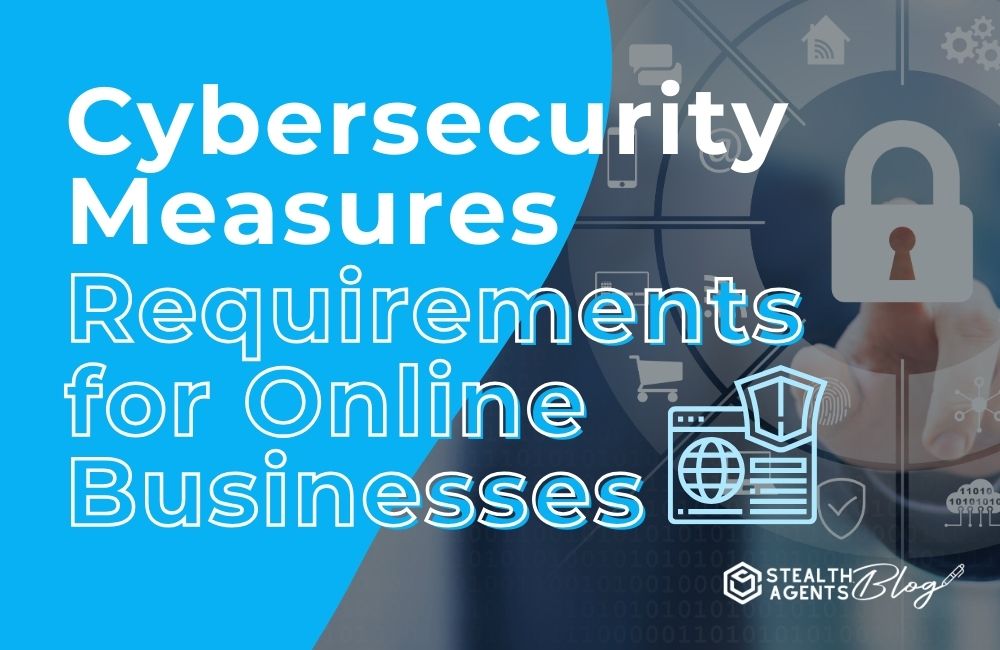In our digitized world, where the click of a button can launch products across the globe, cybersecurity has transitioned from being a matter of IT concern to a pivotal business strategy and personal security to manage to ensure data are intact and secured in a better place.
For online enterprises, fortifying digital defenses isn’t just a ‘nice to have’ – it’s a baseline survival requirement.
This cybersecurity primer will arm you with actionable insight to safeguard your digital storefront from the ever-evolving threats lurking in the cyber shadows.
The Cyber Threat Landscape
Before we don our digital armor, it’s essential to know our adversaries. Cyber threats come in an array of forms, from the pesky phishing scam trying to trick the unsuspecting into revealing passwords to nefarious ransomware locking down essential business data. To fend off these enemies, we’ll need a comprehensive set of tools and processes – cybersecurity measures.
Understanding Cybersecurity Measures
These are the protocols and practices put in place to protect your cyberspace from unauthorized access or alteration and can be thought of as a set of digital martial arts that defend against the ninja attackers of the web.
Types of Cybersecurity Threats
Cyber threats are sneaky, varied, and downright sinister. Among the most prevalent are:
- Phishing and Social Engineering: Deceptive emails and messages aimed at exploiting human psychology instead of software vulnerabilities.
- Malware: Any software designed to damage, disrupt, or gain unauthorized access to computer systems or networks, such as viruses, worms, and trojans.
- Ransomware: A type of malware that locks access to critical data until a ransom is paid.
- DDoS Attacks: Distributed Denial of Service attacks overwhelm systems, preventing legitimate users from gaining access.
- Man-in-the-Middle Attacks: Cybercriminals intercept and potentially alter communications between two parties who believe they are communicating directly with each other.
Key Cybersecurity Requirements
With the enemy profiled, it’s time to guard the virtual fort.
Secure Website Encryption
Ensure your website has HTTPS encryption to protect the integrity and confidentiality of user data. Services like SSL certificates create a secure connection between a web browser and the server that hosts your site, vital for all data transfer, especially personal and financial data.
Strong Password Policies
The virtue of robust passwords can’t be overstated. Implement policies that require complexity and length, discouraging the use of easily guessable phrases. Tools like password managers can assist in keeping track of these digital keys.
Regular Software Updates
Outdated software is a gaping vulnerability. Cybersecurity experts regularly release patches to fix discovered vulnerabilities. Implement a routine to regularly check for and apply these updates – it’s akin to shutting the back door criminals often exploit.
Data Backup and Recovery Plan
Imagine data loss as the villain’s heist – you need a contingency plan. Regularly back up your data both on-site and off-site, and have a roadmap in place for data restoration to minimize downtime in the case of an attack.
Employee Training on Cybersecurity Awareness
Your team can be your strongest or weakest link. Regular training sessions on recognizing and responding to potential threats will imbue a culture of vigilance within your organization.
Impact of Non-Compliance
The stakes are higher than ever in the digital world.
*advertisement*
Tired & Overwhelmed With Administrative Tasks?
Hire A Top 1% Virtual Assistant From Stealth Agents!

Sign Up Below & Hire A Top 1% Virtual Assistant
Rated 4.7 Stars Serving Over 2,000+ Customers.
Hire Top 1% Virtual Assistants For $10-$15 Per Hour
Ask About Our 14 Day Trial!
*advertisement*
Consequences of Inadequate Cybersecurity Measures
For businesses, a data breach or cyber attack can lead to financial loss, incalculable reputational damage, and, in the worst-case scenario, legal liabilities.
Legal Implications and Financial Risks
Laws such as the GDPR have irrevocably altered the landscape of digital privacy, outlining specific protocols and punishing those who fall short. The fines can be hefty, not to mention the cost of litigation resulting from affected customer data.
Best Practices and Tools
Now, we’ll put a spotlight on the tools you need in your cybersecurity arsenal.
Two-Factor Authentication
Adding an extra step for user verification significantly bolsters your site’s security. A one-time passcode sent to a user’s phone or email adds a crucial layer of defense.
Firewalls and Antivirus Software
These are the sentinels at the gate, filtering out malicious traffic before it reaches your network. Regularly updating this software is non-negotiable – the digital world doesn’t stand still, and neither should these protectors.
Intrusion Detection Systems
Once the antivirus keeps the pests out, IDS monitors for any unusual activities within the system – a digital vigilante on the lookout for threats from within the network.
Security Audits and Penetration Testing
Scheduled audits and ethical hacking – in the form of penetration tests – will assess the efficacy of your measures, identifying and plugging holes before the real bad guys can sneak through.
Conclusion
Cybersecurity for an online business is like daily exercise – it may seem like a chore, but the effort put in now will prevent major health issues down the line. By cultivating a thorough understanding of cybersecurity measures and diligently executing the practices outlined above, you not only protect your business but also honor the trust that your customers place in you. Investing in cybersecurity isn’t just a good idea; it’s the guardian that stands between your business and a potentially devastating blow. Take your first steps in this cybersecurity marathon, and your future self will thank you.









